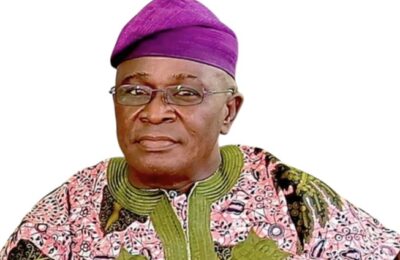There are visions in Scripture that whisper and there are visions that roar, there are lines written in ink and there are lines engraved in thunder, and among the thunders of the Apocalypse none resounds with greater mystery than the sealing of one hundred and forty-four thousand souls in the Book of Revelation. John, the beloved exile on Patmos, sees them not as shadows on parchment but as living witnesses clothed in eternity. He numbers them as twelve thousand from each tribe of Israel, yet their meaning slips through arithmetic like wind through fingers. They are not statistics, they are prophecy. They are not digits, they are destiny. They are heaven’s census, taken not by kings of earth but by the King of Ages.
The number itself shakes the imagination. Twelve multiplied upon twelve and expanded by a thousand becomes more than mathematics; it becomes divine geometry, the architecture of completeness. Myles Munroe once said that God speaks in numbers because numbers cannot lie, and this number—carved into the vision of John—says with thunder that God has not lost count of His own. It is precise because His covenant is precise. It is sealed because His mercy is sealed. It is unbreakable because His throne is unshakable.
The seal placed upon them is no ordinary mark. In the courts of Pharaohs, seals preserved tombs; in the palaces of kings, seals confirmed decrees; in the hands of emperors, seals commanded armies. But here, in the vision of Patmos, the Almighty bends to place His own seal upon men and women, not for conquest but for witness, not for empire but for eternity. Pastor Chris Oyakhilome once declared that when God seals a man, no power on earth can unseal him. The seal is ownership that hell cannot contest, identity that history cannot erase, preservation that time cannot corrupt.
Theologians have argued through centuries whether the 144,000 are literal Israelites preserved in the last tribulation or symbolic of the entire company of the redeemed, Jew and Gentile alike, perfected in Christ. Some read the prophecy as history waiting to happen, others as symbol already fulfilled in the Church triumphant. But Juanita Bynum reminds us that prophecy is not about information but about transformation. Whether literal or symbolic, the destiny revealed in this vision is not in the digits but in the seal, not in the arithmetic but in the assurance that God knows those who are His and keeps them with an unbreakable hand.
The African mind understands sealing not as theory but as survival. In the bustling markets of Nigeria, traders mark their goods with chalk so that no confusion scatters their labor. In Igala wisdom, it is said that the yam that belongs to you will not rot in another man’s barn. This is the echo of Revelation—the destiny of God’s people will not be misplaced in another’s history, will not be consumed in another’s fire, will not be drowned in another’s flood. Bishop David Oyedepo captured it in his prophetic cadence: destiny may be contested, but it cannot be confiscated. TB Joshua pressed it deeper: what God seals, Satan cannot steal.
And how timely this vision appears against the convulsions of our age. Wars stalk continents, famine gnaws at villages, corruption poisons nations, moral confusion eats at civilizations that once claimed to be light. The world quakes with uncertainty, and the news cycle often feels like a rehearsal for Armageddon. Yet into this whirlwind, the voice of Revelation breaks as assurance: God has not abandoned His remnant. Benny Hinn thundered in crusades that the world may shake but those sealed by the Lord shall not be moved, for the blood still speaks. The prophecy does not drape despair upon us—it lifts hope. Like farmers in Africa who wet a small patch of land to preserve what matters most when wildfire rages, so does heaven preserve its chosen while judgment runs its course.
The 144,000 are described as those who follow the Lamb wherever He goes, who are undefiled, who are blameless. Their identity is not only in their number but in their nature. They are not merely counted, they are consecrated. Dr. Paul Enenche has said often that holiness is not outdated but the seal of destiny, for without holiness prophecy becomes fantasy. The vision insists that purity is not optional, it is essential, that faithfulness is not decoration, it is definition. Apostle Johnson Suleman pierced it bluntly: you cannot carry the seal of God and the stain of sin at the same time—one will expel the other. Here the prophecy moves from speculation to summons, from theory to thunder, calling every believer not into curiosity but into consecration.
Yet beneath theology and debate lies the human cry, ancient and modern alike: Am I known? Am I safe? Will I endure? The mystery of the 144,000 thunders an answer: Yes, you are known, yes, you are sealed, yes, you will endure. Evangelist Yinka Yusuf framed it with revivalist fire: every revival begins when man realizes he is sealed not just for survival but for significance. The sealing is not an escape from the world but a commissioning within it, not a shelter from storms but a sending into them with heaven’s mark upon the forehead and heaven’s fire within the heart.
Thus the mystery is not locked in Patmos but walks into Lagos and London, into Abuja and Atlanta, into every place where a believer wonders if he will be swallowed by the tides of his age. The Igbo say that the child carried on the back does not fear the path ahead, and so the one sealed by the Spirit does not tremble before tomorrow’s darkness. Bishop Abioye reminded us that safety is not in geography but in sealing. The prophecy shouts across history: I know My own, I seal My own, I keep My own.
This is why Revelation, though clothed in apocalyptic imagery, is not ultimately a book of wrath but a book of assurance. The vision of the 144,000 is heaven’s testimony that not one name in the Lamb’s Book of Life will be smudged, not one soul sealed by the Spirit will be lost in the rubble of history. The number is exact because His love is exact. The seal is eternal because His covenant is eternal. The hope is unshakable because His throne is unshakable. Apostle Ayo Babalola’s cry still echoes: the fire may burn but it cannot consume the man sealed by the Spirit.
The mystery of the 144,000 thus becomes a mirror held before every soul. It is less about arithmetic and more about allegiance, less about digits and more about destiny. It does not merely tell us of a group in apocalyptic visions, it tells us of ourselves: Have you been sealed? Do you belong? Will you endure? The prophecy assures that heaven has not lost count. In a universe of shifting sands, God still numbers His own with precision, still marks His chosen with fire, still keeps His saints with unbreakable fidelity. Nations may rage, empires may collapse, stars may fall, but those sealed by the Lamb will sing the Lamb’s song even in the midst of chaos. And whether the 144,000 are literal or symbolic, their truth stands eternal: the God who seals will not forsake, the God who counts will not forget, the God who calls will not abandon.
– Inah Boniface Ocholi writes from Ayah – Igalamela/Odolu LGA, Kogi state.
08152094428 (SMS Only)




